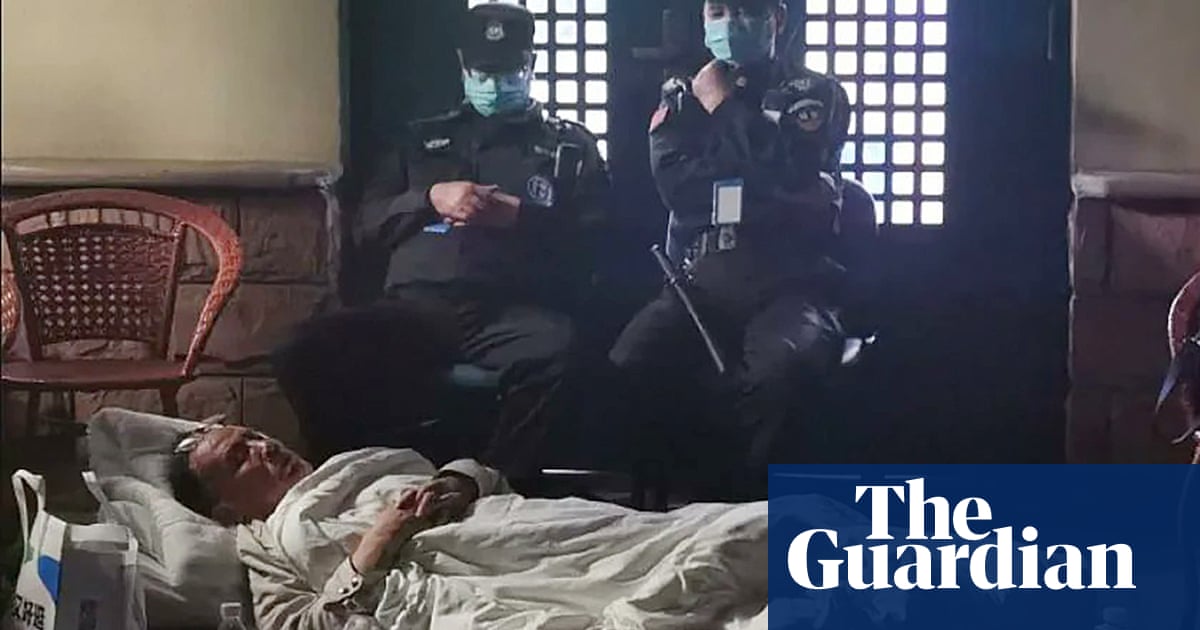The first Chinese scientist to publish a genomic sequence of the Covid-19 virus, in defiance of government orders, staged a sit-in protest after claiming he was locked out of his laboratory over the weekend.
Zhang Yongzhen, a virologist, said in an online post on Monday that he and his team had been given a sudden eviction notice from their lab, and guards had barred him from entering it over the weekend. The post, published on Weibo, was later deleted, Associated Press (AP) reported.
After extensive media and social media coverage, on Wednesday Zhang said he and his team had been “tentatively” allowed to resume work inside the lab.
“I would like to sincerely thank all the netizens and people from all walks of life who have supported me and my team for a long time,” he said on Weibo.
Zhang had been sitting outside the lab since Sunday. Photos posted online show a man purported to be Zhang sleeping on the ground.
Zhang published his scientific findings about Covid-19 without government approval in January 2020. He and his team have since been subject to a series of setbacks, demotions and oustings, of which the eviction appears to be the latest.
The Shanghai Public Health Clinical Center said in a statement that Zhang’s lab was closed for “safety reasons” and renovations. It said Zhang’s team had been given alternative lab space.
However, Zhang said the offer was not made until after his team was evicted, and that the new lab did not meet the team’s required safety standards.
“I won’t leave, I won’t quit, I am pursuing science and the truth!” he said in the since-deleted Weibo post. “The Public Health Center are refusing to let me and my students go inside the laboratory office to take shelter.”
Teacher Li, who runs an information-sharing and activism-monitoring account on X, said students had protested against the closure and clashed with security guards.
Zhang, when reached by phone on Tuesday, said it was “inconvenient” for him to speak, but a colleague confirmed to AP on Monday the protest was taking place.
The move shows how the Chinese government continues to pressure and control scientists, seeking to avoid scrutiny of its handling of the coronavirus outbreak.
After sequencing the virus on 5 January 2020, Zhang and his team initially sent a notice to Chinese authorities warning of its potential to spread. The next day his lab was temporarily shut down by China’s top health official.
Foreign scientists called for Zhang and other Chinese scientists to be allowed to publish the sequencing. The following week Zhang published his sequence – without authority – allowing global health authorities to begin testing for Covid-19, finding that it was spreading outside China. It also kickstarted the development of tests, vaccinations and other pandemic measures.
Internationally Zhang was lauded, receiving prizes in recognition of his work, but domestically he came under pressure. He was barred from collaborating with some former research partners and removed from his post at the Chinese Center for Disease Control and Prevention.
During the pandemic, the government also arrested citizen journalists who sought to report on the impact of the outbreak on people and hospitals.
In 2021 Zhang told the New York Times he did not regret his actions. “I trusted myself. I have so much experience, my team has made so many discoveries over the years, that we were able to make accurate judgments,” he said.
Zhang’s team appeared to receive a lot of public support on Weibo, where related hashtags were viewed by tens of millions of Chinese. “How can the country develop if we treat scientific researchers like this?” one said.
Some article links appeared to have been removed since they were posted but extensive discussion of Zhang’s dispute with the Shanghai health authority remained online on Tuesday afternoon.







